Historical reenactments are everywhere, and the volunteers who keep alive the memory of our past deserve our highest praise.
Along with pure re-enactments, where the fate of the participants is already predetermined by history, and HEMA, where athletes compete using European weaponry and armour, there is a middle-ground discipline that is gaining momentum in Italy: Sport Reenactment.
In short, SR players take part in reenactment events wearing faithful replica of the coats and arms of ancient Italian, Greek, Celtic and German tribes. But they also meet in forests and mountains to fight following a ruleset but without knowing in advance who is going to win.
The participants wear protecting gear and use harmless weapon, nonetheless, training is of the utmost importance to avoid accidental injuries.
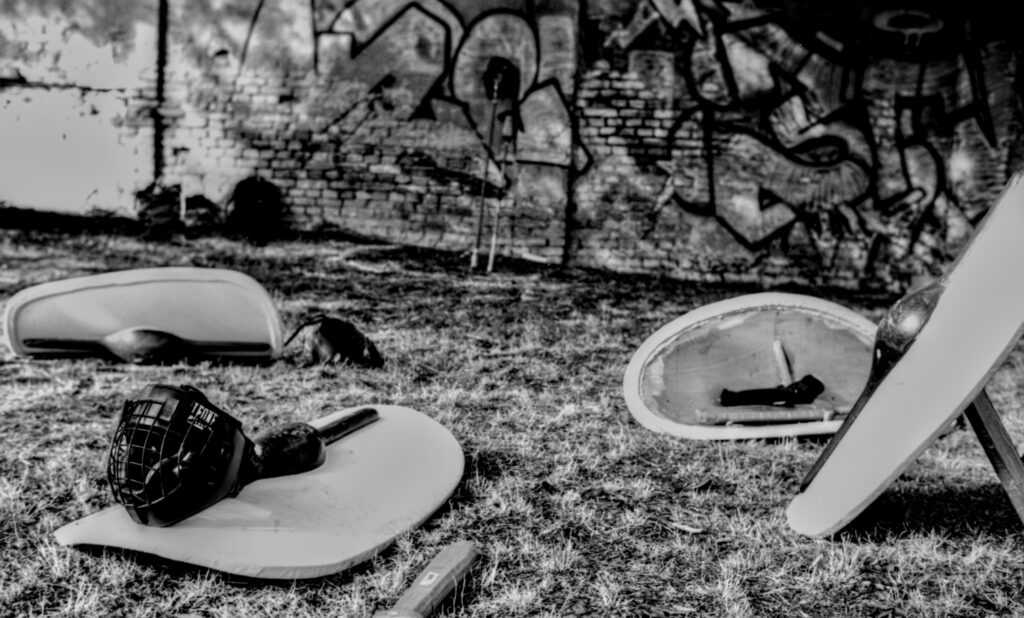
Bouts can involve groups of people or just two contenders. It doesn’t matter who is fighting who, so it may happens that a single or a double spear fights against a dagger and a shield
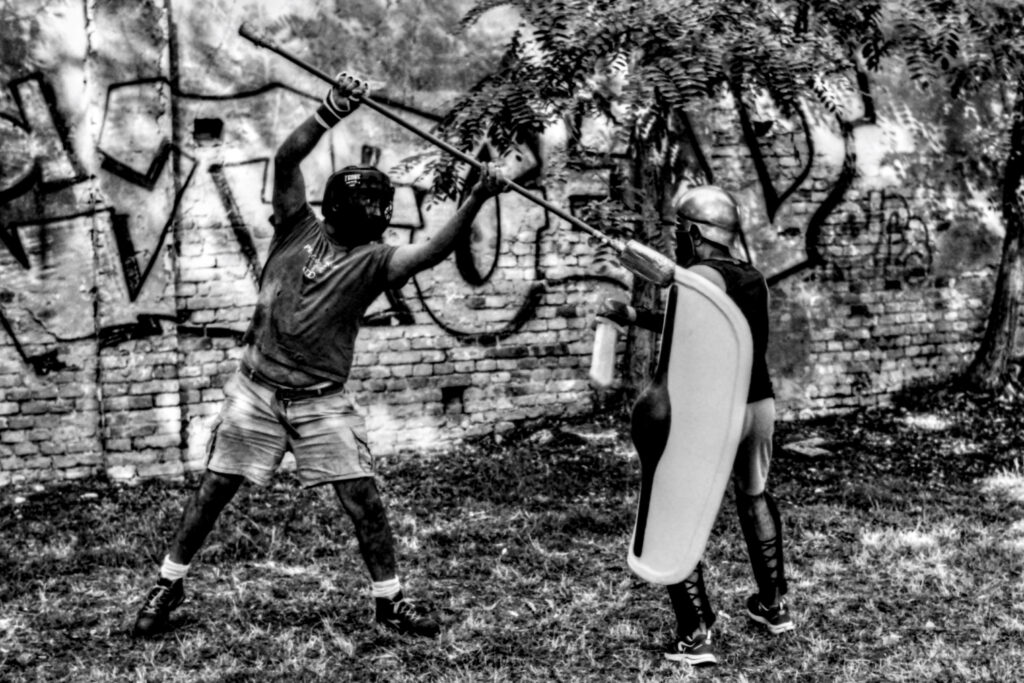
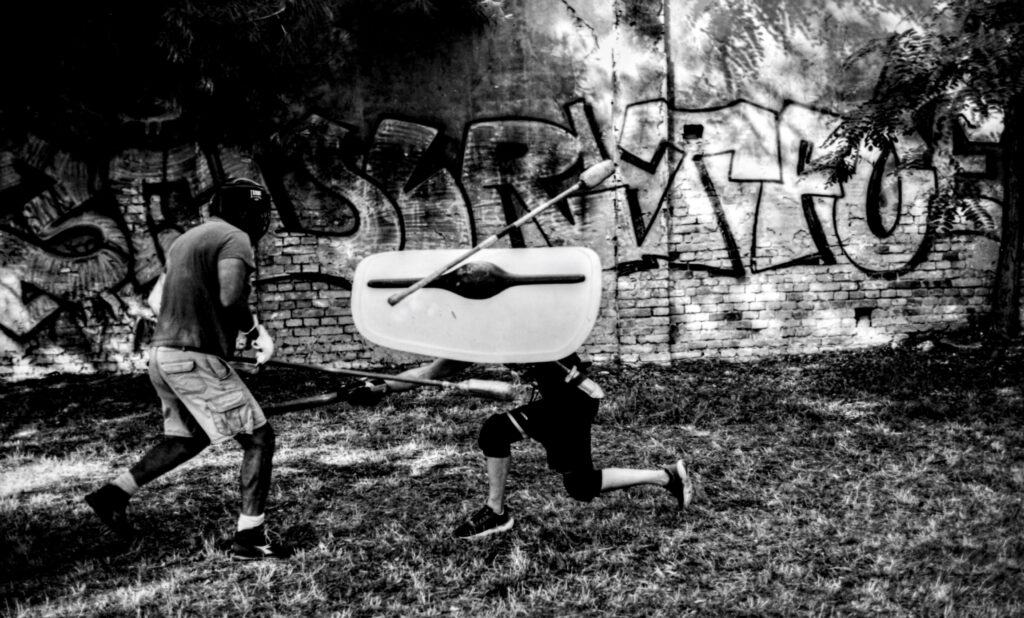
or that two combatants fight each other with the same setup:
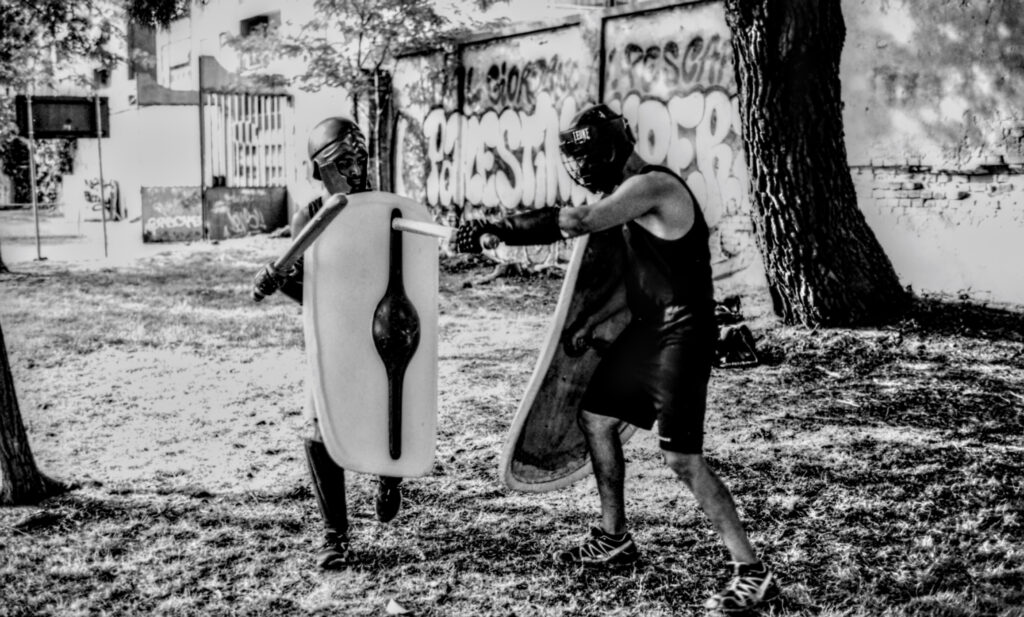
These pictures, taken during a training session for the upcoming Campo Martio gathering that will take place next August 24, 2024 show the peculiarity of this discipline: the photographer is right in the middle of the action, so he must protect himself from accidental blows and, at the same time, avoid getting in the way of the athletes.
This a condition similar to Track and Field photography where, unlike other sports where photographers are confined to specific areas, they may be allowed to roam the field. This gives a unique opportunity to capture the action, but it also increases the risk of bumping into an athlete or getting in the way of measurement equipment damaging the competition.
SR shares the same situation, only with a higher possibility of getting stuck if not enough attention is paid. To visualize the meaning of these words, think of being in the middle of a rugby scrum, with both teams that only think of the ball…
The pictures I took during this training session served to familiarize with the sport, identify the best lenses, the various possible framing, and how to interact with the athletes (actually, how to avoid getting hit). A 35mm is a good compromise that produced fair results. In this session I used a Nikon 35TI and a Ferrania Orto, but, in Campo Martio, I’ll be bringing my Pentax K-1 Mark II and the Pentax 24-70 to the game and leave the 35TI as a secondary camera.
Share this post:
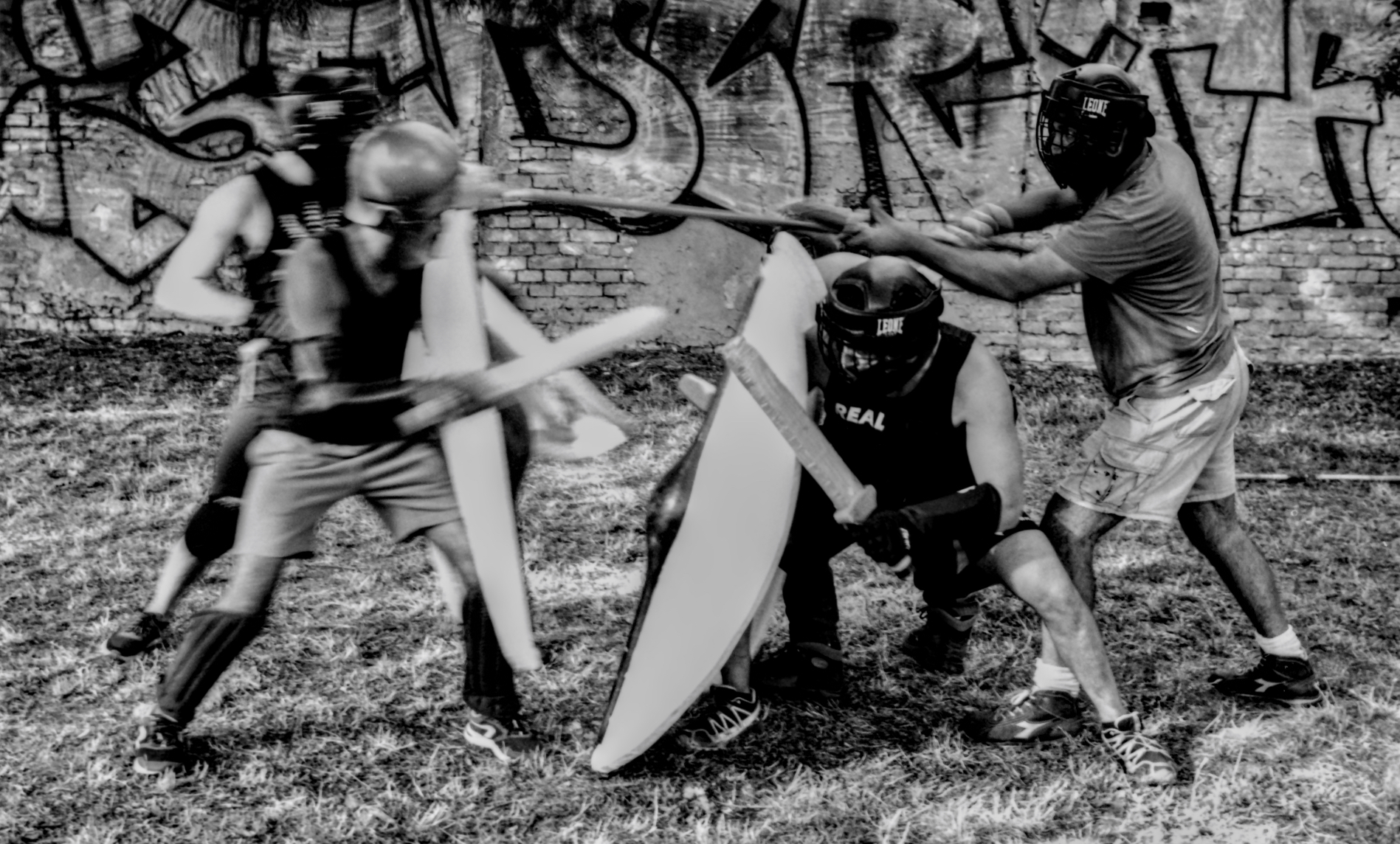
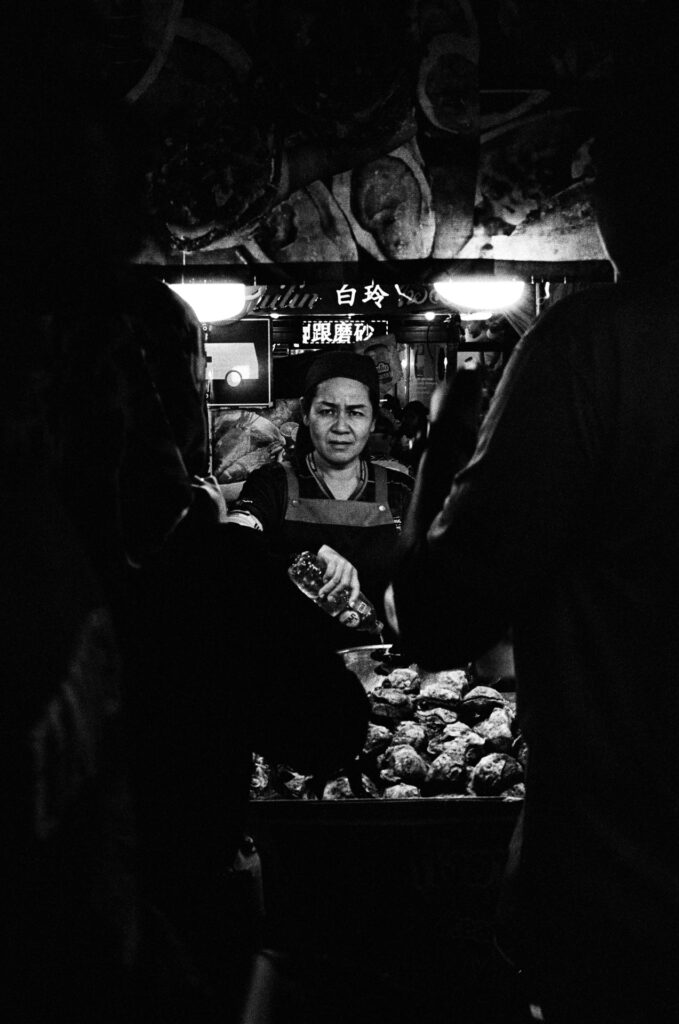
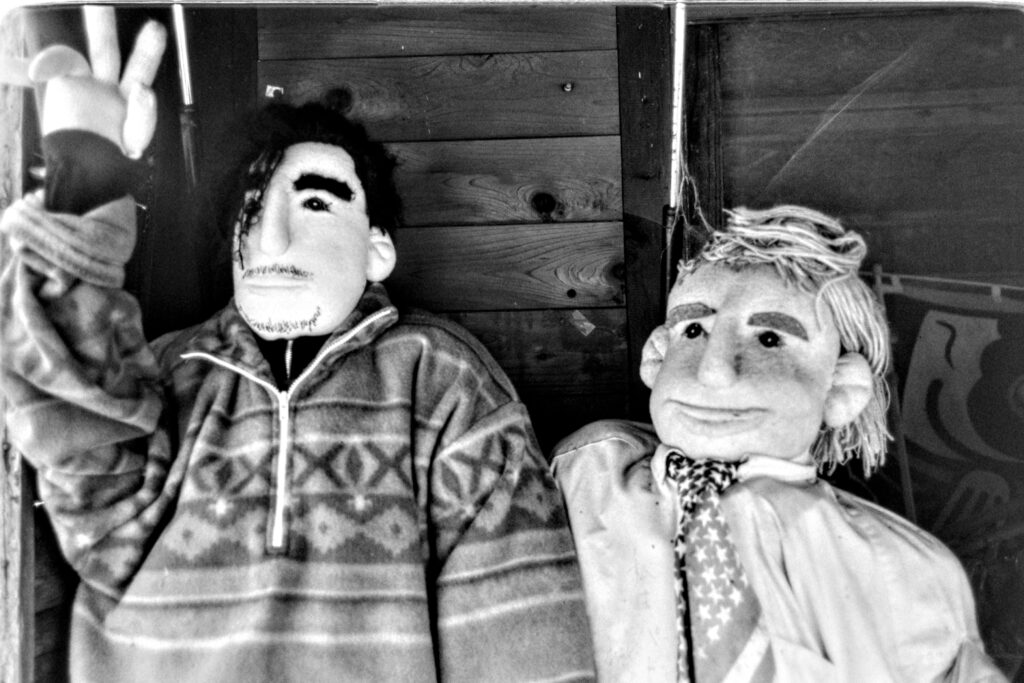
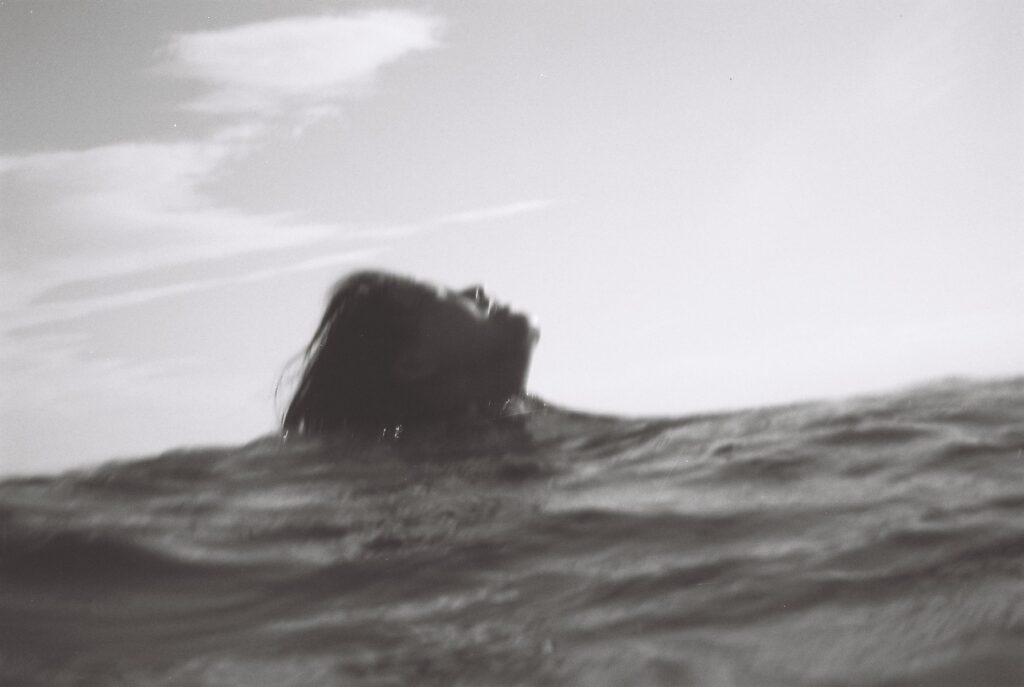
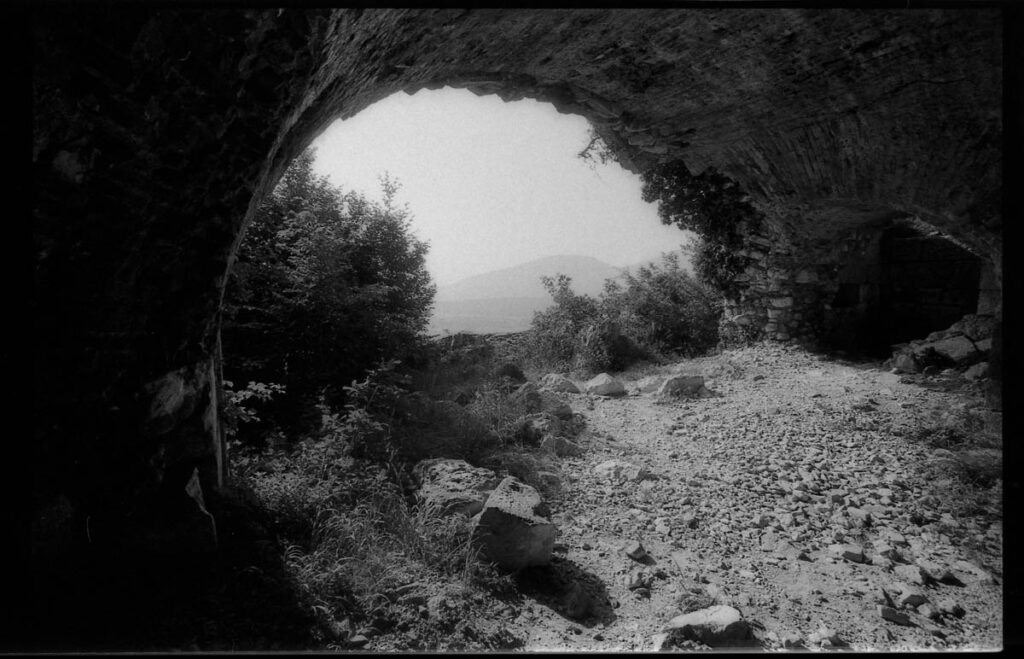




Comments
Paul Quellin on Shooting Historical European Martial Arts (HEMA)-like Events
Comment posted: 17/08/2024
Andrea Monti on Shooting Historical European Martial Arts (HEMA)-like Events
Comment posted: 18/08/2024